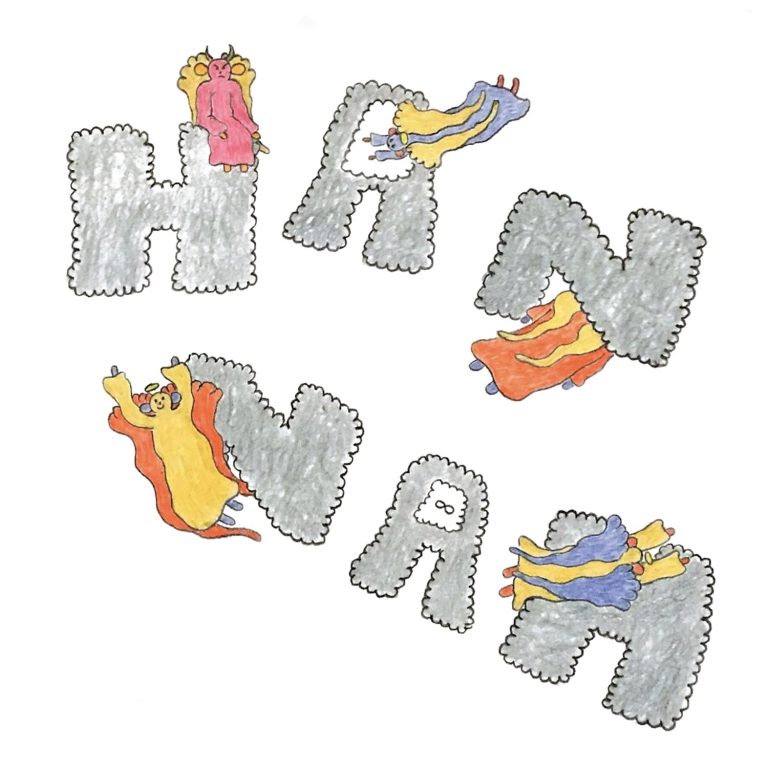In the daily swirl of misinformation, social media anonymity, and public officials outright lying on a national scale, honesty is starting to feel like a rare commodity these days. Thankfully, Austin singer-songwriter and multi-instrumentalist Hannah Read, better known by her stage name Lomelda, is a beacon of quiet honesty in the musical world. Over three studio albums, Read has given us a solid idea of who Lomelda is as a band, but on her dazzling fourth album, it feels like her journey has come full circle. Hannah is a culmination of everything Read has done up to this point and she delivers bittersweet missives through tender songwriting and a deft application of her strengths as a musician.
Read has always had a way with words, and her lyrics often blend into her music with an effortless lilt. On Hannah, she bares her soul through a mix of earnest poetry and casual colloquialisms. If 2019’s M For Empathy had Read compiling all her anxieties into a neatly-wrapped package, Hannah is where she tears that package apart with a boxcutter and leaves the pieces scattered for everyone to see. Read has opened up immensely on both an emotional and musical level, resulting in her most resonant body of work yet.
The first sounds on Hannah are a soft inhale and a piano so close you can hear the mechanical components of the instrument almost as clearly as the round tones it produces. Immediately, Read transports you into her personal, ruminative realm and she keeps you there, entranced and floating in the vacuum of the sublime space she has created for the entirety of the record. There is a deep intimacy at play, but it’s never presented in a way that excludes the listener.
Read’s lyrics burrow into you and tug at the source of your empathy. Sometimes, she moves on from one line to the next before the thought is even finished, but like a well-constructed puzzle, the pieces tend to have the greatest effect when taken as a whole. On “Polyurethane”, Read is overcome by a painful memory while she waits for the polyurethane on a DIY project to finish drying. “Why do I try rememberin’ this / Like kissin’ when it’s all salt,” she ponders alongside faintly plucked guitars and rich, warm cello tones. It’s one of the most exquisite folk songs she has ever written and is up there with some of the best Big Thief songs as an outstanding modern indie-folk composition.
Later, on the incredible “It’s Lomelda”, Read shows that her lyrics can be powerful and still have a sense of humor. In a hook that has Read listing out her musical influences (“It’s Low, it’s Yo La Tengo / It’s the Innocence Mission / Frank Ocean, Frankie Cosmos”) she encapsulates what’s wonderful about the music community and demonstrates why music is such an important part of her life. She even gets a bit cheeky with it, name dropping Low as the first lyric to fool the listener into thinking she’s about to sing the name of her band, as the title “It’s Lomelda” would suggest. The track stands as the centerpiece of the record, and it feels like the apogee of her entire career. The slow-burning, frisson-inducing rock instrumental gradually builds into a sound so profound and immense it’s like a cosmic explosion, propelling new life in every direction. The track also serves as a showcase of Read’s magnetic voice, which rises and falls with the music and acts as the emotional bedrock to many of her songs.
Throughout Hannah, Read flirts with new techniques and ideas, allowing for a much more diverse range of styles. “Stranger Sat By Me” combines plush pianos with a lo-fi electronic beat and warbly, high-pitched synthesizers. Elsewhere, “Both Mode” begins as a seething, angst-ridden headbanger until around the two-minute mark, where it evaporates into a considerably softer and more laid-back tone. “Wonder” sets itself apart by experimenting with structure in a few interesting ways; the track gets right to the point, cutting out most of the traditional components you’d find in a pop song, leaving what amounts to a few choruses sectioned off by brief instrumental segments. It also foregoes any concrete time signature, creating a malleable canvas so Read can belt out her words of self-encouragement as much as her heart desires.
A few of the sonic detours don’t pan out as much, with “Sing for Stranger” being the sore thumb that sticks out in the bunch. Overall, though, the melange of sounds on Hannah and the way Read incorporates them is hugely gratifying.
On “Stranger Sat By Me”, Read admits she can’t hold onto her music forever: “I don’t own it / The songs are free,” she whispers. Read may have written these songs from a specific point of view, but once they are shared with the world, they become universal. Any personal significance the music held now expands and opens up to near-limitless interpretations. In the case of Hannah, both Read and the listener find solace in knowing that being part of a shared experience is easier than facing the darkness alone.


